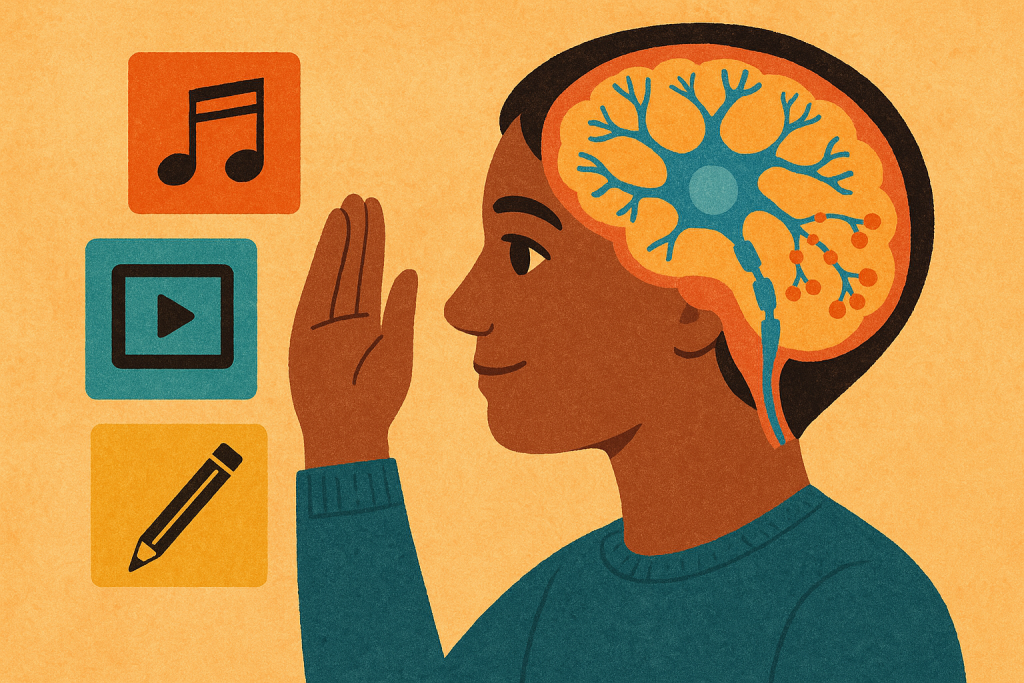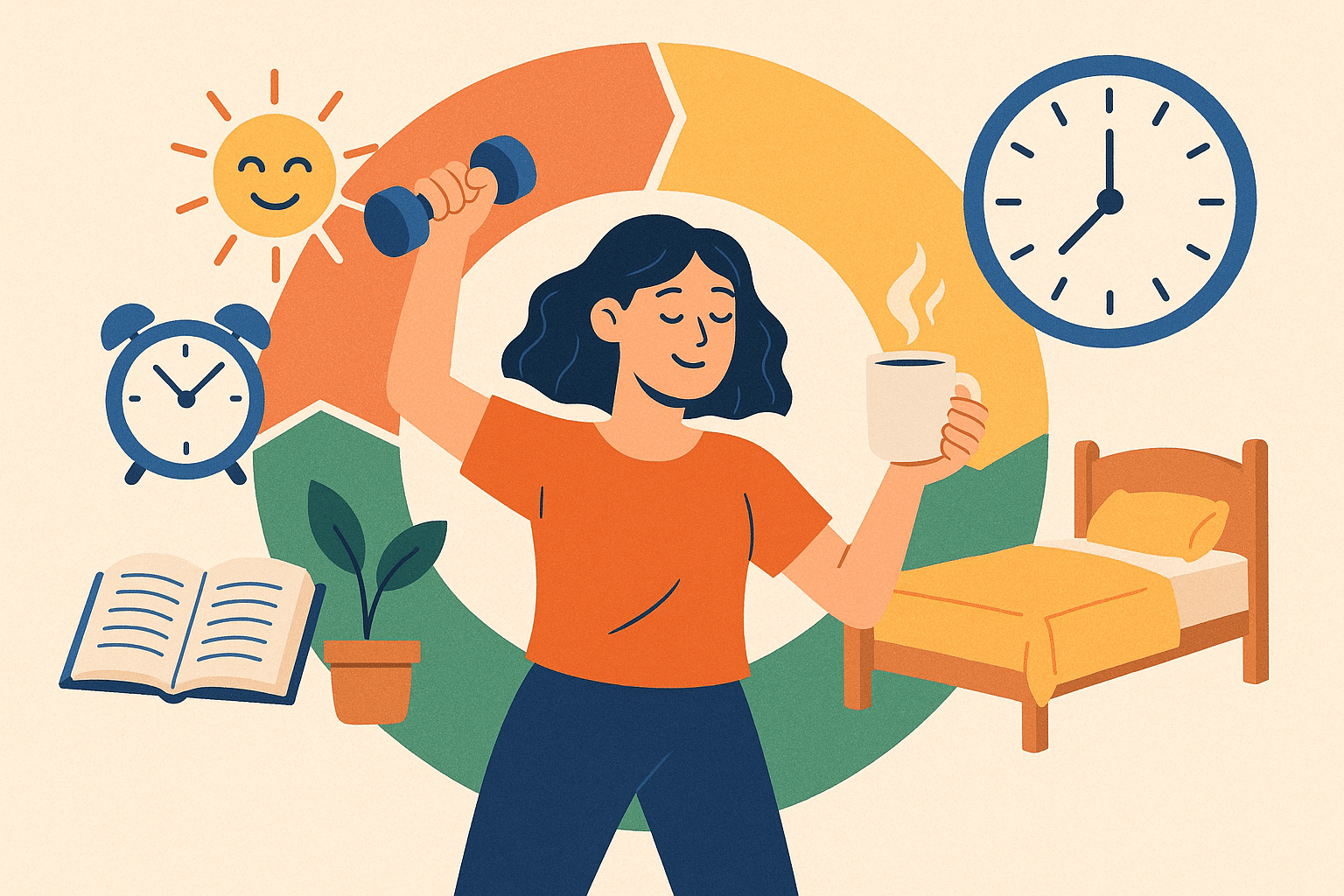Learning new skills isn’t just about adding another line to your résumé—it transforms your brain. When we learn new skills, our brains trigger biochemical and structural shifts that enhance memory, focus, and emotional resilience. In this deep dive, we explore cutting-edge trends—from brain-derived neurotrophic factor (BDNF) boosts to VR-enabled neuroplastic rewiring—and practical ways to harness them.

What Does “Learning New Skills” Do to Your Brain Chemistry?
1. Neuroplasticity in Action
Your brain isn’t static—it rewires, adapts, and strengthens connections as you learn. Neuroplasticity drives this process: as you pick up a language, instrument, or digital skill, synapses reorganize and deepen, physically changing the way you think and process information earth.comverywellhealth.com.
2. BDNF & Brain Growth
When you challenge your brain, your body releases BDNF—a key protein that stimulates neuron growth. Activities like learning or exercise increase BDNF levels, fostering new neural pathways, strengthening memory, and even growing hippocampal tissue .
3. Epigenetic Switches
Learning isn’t just chemical—it’s molecular. Research reveals that memory consolidation depends on changes in DNA methylation and histone acetylation—epigenetic mechanisms that “turn on” genes vital for synapse formation and memory retention.
Why It’s Hot Right Now: Emerging Trends and Technologies
Fast Skill Acquisition
Recent studies show the brain picks up new skills far faster than previously thought—laying down neural patterns well ahead of behavioral mastery. This acceleration is fueling new approaches in education and rehab.
Targeted Neuroplasticity Training
DARPA’s TNT program combines non-invasive brain stimulation with training to enhance neurochemical signaling. By pairing training with tech, it accelerates long-term skill retention. Imagine gaining complex abilities like a pilot or surgeon in a fraction of the time.
Virtual Reality & BCI Applications
Virtual reality (VR) and brain-computer interfaces (BCIs) aren’t sci-fi—they’re being used to boost neuroplasticity for rehab and cognitive enhancement. Meta-analyses show VR/BCI techniques help rebuild motor skills and rewire cognitive patterns mdpi.com.
Brain‑training Software Evolution
Apps once dismissed as gimmicks are now data-driven platforms that boost memory and attention with personalized exercises; some even integrate non-invasive neurostimulation for targeted results.
Practical Guide: Enhance Brain Chemistry by Learning New Skills
Keyphrase: learning new skills can change your brain chemistry
This learning new skills can change your brain chemistry guide gives you science-backed steps to grow smarter, faster.
1. Choose the Right Challenge
- Pick a skill requiring focus—like a new language or coding—to stimulate hippocampal growth.
- Combine mental and physical (e.g. dance, martial arts) to increase motivation and BDNF release .
2. Embrace Regular Practice
- Daily micro-sessions (15–30 min) maintain momentum.
- Spaced repetition forms long-term memory.
- Even before you “feel” the change, your brain chemistry is adapting.
3. Boost Biochemistry Naturally
- Stay active: aerobic exercise increases BDNF up to 3×.
- Use enriched environments—social, stimulating—to enhance synaptogenesis.
4. Apply Science & Tech
- Use VR, BCIs, or neurostimulation tools to accelerate learning—if accessible.
- Data shows combining learning with stimulation is especially effective.
5. Support Epigenetics with Lifestyle
- Get quality sleep, balanced nutrition, and stress reduction (e.g., mindfulness) to support epigenetic changes and memory pathways.
What These Changes Mean for You
Sharper cognition & memory
New neural connections improve your attention, planning, and adaptability.
Faster skill acquisition
Early brain patterning means your brain learns faster—even before performance shows it earth.com.
Boosted mood and motivation
BDNF elevates your sense of reward, passion, and mental resilience—like a natural dopamine shot.
Better cognitive resilience
Enriched life + new learning builds a brain that’s resistant to aging, distraction, and stress .
Top 5 Trendy Skills to Turbocharge Your Brain
| Skill | Benefit |
|---|---|
| Coding or Python | Builds logical/digital thinking |
| Musical instrument | Enhances auditory/motor integration |
| New language | Expands memory & grey‑matter growth |
| VR-based learning | Immersive, high-feedback training |
| Non-dominate hand practice | Activity-dependent plasticity in action |
Takeaway
Learning new skills can change your brain chemistry—rewiring circuits, releasing growth proteins, and switching genes on. With emerging tech—like VR, TNT, BCIs—and proven habits like exercise and practice, it’s never been easier to engineer your own mental upgrade.
Start today: pick a challenge, commit to daily habit, support your brain with healthy living—and watch your cognition transform.
References
1. Cunnington, R. (2020). Neuroplasticity: How the brain changes with learning. UNESCO‑IBE. Retrieved from https://solportal.ibe‑unesco.org/articles/neuroplasticity-how-the-brain-changes-with-learning/
2. Oby, E. R., Golub, M. D., Hennig, J. A., Degenhart, A. D., Tyler‑Kabara, E. C., Yu, B. M., Chase, S. M., & Batista, A. P. (2019). New neural activity patterns emerge with long‑term learning. Proceedings of the National Academy of Sciences, 116(24), 11841–11847. Retrieved from https://www.sciencedaily.com/releases/2019/06/190610151934.htm
3. Krok, A., Tritsch, N. X., Maltese, M. R., & Mistry, P. (2023). Dopamine’s role in unrewarded learning: Dopamine–acetylcholine oscillations drive continuous learning. Nature / NYU Langone Health. Retrieved from https://neurosciencenews.com/dopamine-unrewarded-learning-23778/






